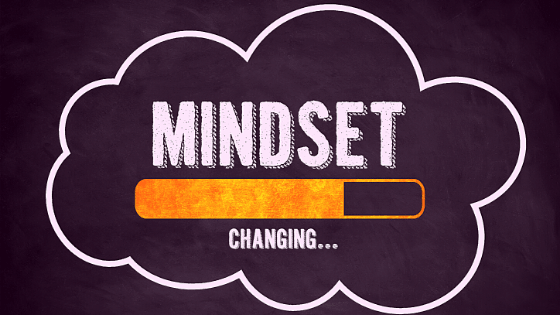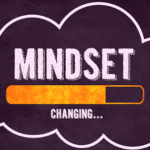Now Reading: The One Mindset That Changes Everything: Secret 90% Don’t Discover
-
01
The One Mindset That Changes Everything: Secret 90% Don’t Discover

The One Mindset That Changes Everything: Secret 90% Don’t Discover
How Personal Responsibility Transforms Your Mental Health Journey and Unlocks Success in Life
What if I told you that the secret to lasting mental health recovery isn’t found in a pill bottle or therapy session, but in a single mindset shift that 90% of people never make?
You’re about to discover the one mindset that separates those who struggle endlessly with their mental health from those who break free and build the life they actually want to live.
This isn’t about toxic positivity or “just think positive” nonsense. This is about understanding your true role in your own healing process—and why that understanding changes everything.
The Harsh Truth About Mental Health Recovery Most People Never Hear
Taking responsibility for your mental health recovery doesn’t mean you caused your mental illness. It doesn’t mean you should suffer alone. And it certainly doesn’t mean professional help isn’t crucial.
What it does mean is this: you are the primary agent of your own healing.
After working with countless individuals on their mental health journeys, I’ve witnessed one fundamental truth: People have a personal responsibility for their own self-care and journeys of recovery. Taking steps towards their goals may require great courage.
Let me share what I learned the hard way.
My Mental Health Recovery Story: The Mindset From Passive Patient to Active Participant

When I first started working on my mental health, I had some understandable but limiting beliefs about how mental health recovery actually works.
I thought if I just went to therapy consistently and followed what my therapist suggested, my depression would eventually lift. I was essentially waiting for healing to happen to me.
I had hopeful ideas about what treatment “should” do—how much easier recovery would be if the right medication or therapy technique would just fix everything automatically.
At the time, I was barely functioning day to day. Struggling to maintain relationships, work, and basic self-care. My financial situation was also suffering—I was stuck in a job that drained me, making barely enough to cover therapy costs, with no energy left to pursue opportunities that could improve my situation.
I had little understanding of how healing actually works or how mental health impacts every area of life, including financial wellbeing.
But in my pain, I believed that if I just kept showing up to appointments, things would get better on their own. I was waiting for someone else to heal me.
“You have been criticizing yourself for years, and it hasn’t worked. Try approving of yourself and see what happens.” — Louise Hay
The Mental Health Recovery Breakthrough: Understanding Your Role
Things began to shift when I started learning more about recovery-oriented mental health approaches. I realized that while professional support is crucial, no one else can do the work of healing for me.
Mental health recovery isn’t something that happens to you—it’s something you actively participate in. This was both terrifying and liberating to understand.
I began to adopt this mindset: My healing is ultimately my responsibility, and I have more power than I realized.
Not that my therapist, medication, or support system don’t matter—they absolutely do. But I had to stop waiting for them to “fix” me.
As research shows, the last two stages (Rebuilding and Growth) were related to taking responsibility and empowerment for recovery.
The Mindset Shift That Changes Everything About Mental Health Recovery

Here’s what I discovered: self-advocacy in mental health means becoming an active partner in your own healing process.
If I wanted meaningful change in my life, I had to become an active participant in my own healing. My therapist couldn’t do my homework for me. My medication couldn’t make the lifestyle changes I needed. My friends couldn’t learn my coping skills for me.
The whole idea is this: the mindset of waiting for someone else to heal you keeps you stuck.
Real recovery happens when you realize you’re not helpless—you’re the primary agent of your own healing.
“Your present circumstances don’t determine where you go; they merely determine where you start.” — Nido Qubein
How Personal Responsibility Transforms Your Mental Health Recovery
I made the decision to stop waiting for healing to happen to me and started actively working with my treatment team.
That’s when I started seeing real progress. Not overnight, but consistent, meaningful change.
And here’s what surprised me: as my mental health improved, other areas of my life began to shift too. I started performing better at work, found the energy to pursue side projects, and eventually built additional income streams that gave me more financial freedom to invest in my continued healing.
I learned that taking responsibility for my healing didn’t mean doing it alone—it meant being an active, engaged partner in my own recovery. And as I got mentally healthier, I naturally became more capable of creating the life—and financial stability—I wanted.
“In the depths of winter, I finally learned that within me there lay an invincible summer.” — Albert Camus
The Connection Between Mental Health Recovery and Life Success
Mental wellness and financial success are more connected than most people realize. When you have the mindset to take ownership of your mental health recovery, you’re not just improving your emotional wellbeing—you’re building the foundation for success in every area of your life.
Wellness Recovery Action Plan (WRAP) is a tool you can use to stay well and make your life your own. It teaches you how to use some key concepts of recovery – hope, personal responsibility, education, self-advocacy and support – in your daily life.
And because I built these skills myself, with support, they became truly mine. Nobody can take them away from me.
Why Most People Stay Stuck in Their Mental Health Journey
Too many people today feel powerless in their mental health journey. They’re afraid to believe they can influence their own healing. They think the safer option is to hope someone else will fix them.
But here’s the truth: while you need support, you also need to show up for yourself.
People these days rely too much on external validation and quick fixes. They’re too afraid to take control of their own mental health recovery. They believe the safer option is to hope someone else will help them heal.
“Talk to yourself like you would to someone you love.” — Brené Brown
The 5 Pillars of Taking Responsibility for Your Mental Health Recovery
1. Active Participation in Treatment
Show up fully to therapy sessions, take medications as prescribed, and engage with your treatment plan rather than passively receiving care.
2. Self-Advocacy Skills
Learn to communicate your needs, ask questions, and speak up when something isn’t working in your treatment.
3. Lifestyle Integration
Recognize that healing happens outside the therapy room too—through sleep, exercise, nutrition, and daily habits.
4. Building Your Support Network
While you can’t rely on others to heal you, building strong connections is crucial for sustained recovery.
5. Continuous Learning
Stay curious about your mental health, learn coping strategies, and educate yourself about your condition.
The Real Truth About Mindset in Mental Health Recovery
The sooner you realize how much agency you have in your own healing, the faster you’ll start to see real change—not just in your mental health, but in your relationships, career, and financial situation too.
You can have the mental wellness you want, and the life that comes with it. But it requires you to be an active participant in creating it.
Taking Control of Your Mental Health Recovery Journey
Use this understanding to take ownership of your healing journey. Self-advocacy and active participation are what make recovery possible. Waiting passively keeps you stuck.
Your healing matters, and you have more power than you know.
“Just because no one else can heal or do your inner work for you doesn’t mean you can, should, or need to do it alone.” — Lisa Olivera
What Taking Responsibility for Mental Health Recovery Really Means
Let me be clear: taking responsibility for your mental health recovery doesn’t mean:
- You caused your mental illness
- You should suffer in silence
- Professional help isn’t important
- You have to do everything alone
It means:
- You’re an active participant in your healing
- You have more influence than you realize
- Your choices and actions matter
- You’re capable of creating positive change
The Bottom Line of Mindset on Mental Health Recovery
Mental health recovery is not a destination—it’s an ongoing journey that requires your active participation. When you shift from the mindset of being a passive patient to an active participant, everything changes.
The research supports this: A mental health recovery plan, also called a wellness recovery action plan (WRAP), helps you: identify what sort of life you want to lead and create positive changes · take personal responsibility to achieve your goals
Your mental health journey is unique to you. But the principle remains the same: the more responsibility you take for your healing, the more empowered you become to create the life you want.
Ready to take control of your mental health recovery journey?
If you’re interested in learning more about how mental wellness connects to financial wellness and building the life you want, I’d love for you to join our newsletter. We share practical strategies for people who are working on their mental health while also building financial stability and pursuing their goals. You’ll get insights on managing money anxiety, building confidence for career growth, and creating sustainable success that supports your overall wellbeing.
[Subscribe to our newsletter here] and start your journey toward comprehensive wellness today.




















